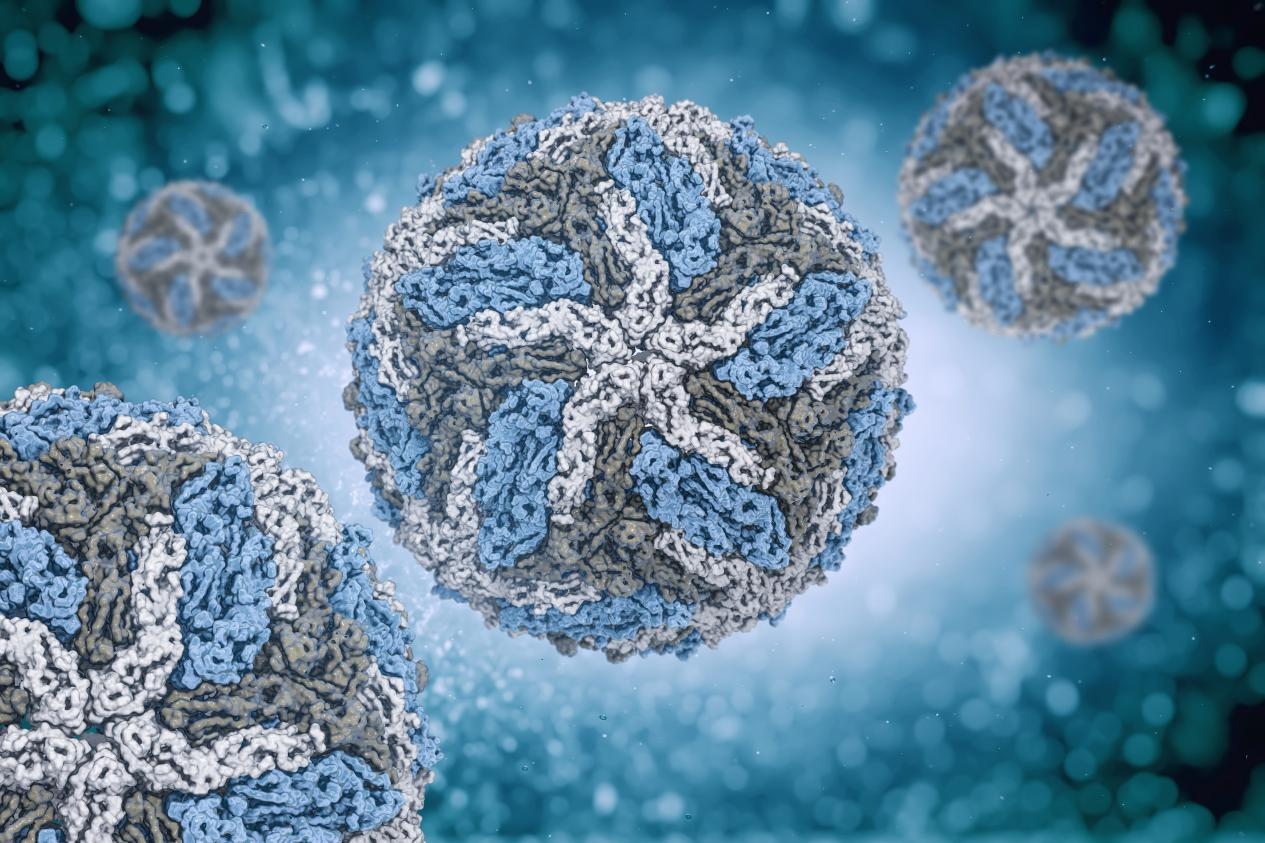Dengue virus (DENV) is a serious mosquito-borne virus that can affect millions of people worldwide every year. GemPharmatech has constructed genetically engineered mouse models to assist in dengue virus-related research.

Figure 1: Dengue virus
The dengue virus can cause serious neurological complications including depression, drowsiness, confusion, epileptic seizures, meningitis, myelitis, encephalitis or encephalopathy—as well as fatal symptoms such as “dengue hemorrhagic fever.” At present, there are no specific drugs or effective vaccines to treat or prevent DEBV.
Interferon (IFN) is a class of cytokines with multiple biological functions, which are mainly divided into type I, type II and type III[1]. Type I and type II interferon receptor knockout mice (Ifnar1 & Ifngr1 dKO mice, referred to as AG129) are of great value in studying antiviral immune responses and interferon signaling. AG129 mice can be used for DENV infection mechanisms and vaccine effects. Because these mice lack interferon-α/β and -γ receptors, they are highly sensitive to DENV. Studies have shown that aged AG129 mice are highly sensitive to DENV serotypes 1-4 and, after adaptation, produce neurotoxic strains that show enhanced replication, increased disease severity, increased neuropathogenesis and high mortality[2]. AG129 mice can exhibit key features of human DENV infection, including replication in the spleen, significant viremia, vascular leakage and thrombocytopenia and other severe diseases[3-5]. This makes them an important model for evaluating the efficacy of dengue vaccines and antiviral drugs.
GemPharmatech’s AG129 mice can provide effective support for the development and research of dengue virus vaccines and related drugs.
Strain No. | Abbreviation | Application |
Dengue virus, Zika virus vaccine and related drug research | ||
Virus, immunity, metabolism, tumor and other fields of research | ||
Virus, immunity, metabolism, tumor and other fields of research |
To learn more about these models, please contact us at sales@gempharmatech.com.
References:
[1] Li Q, Tan F, Wang Y, et al. The gamble between oncolytic virus therapy and IFN[J]. Frontiers in Immunology, 2022, 13: 971674.
[2] Siddqui G, Vishwakarma P, Saxena S, et al. Aged AG129 mice support the generation of highly virulent novel mouse-adapted DENV (1-4) viruses exhibiting neuropathogenesis and high lethality[J]. Virus Research, 2024, 341: 199331.
[3] Ngwe Tun M M, Nwe K M, Balingit J C, et al. A novel, comprehensive A129 mouse model for investigating dengue vaccines and evaluating pathogenesis[J]. Vaccines, 2023, 11(12): 1857.
[4] Chan KW, Watanabe S, Kavishna R, Alonso S, Vasudevan SG. Animal models for studying dengue pathogenesis and therapy. Antiviral Res. 2015 Nov;123:5-14.
[5] Byrne AB, García CC, Damonte EB, Talarico LB. Murine models of dengue virus infection for novel drug discovery. Expert Opin Drug Discov. 2022 Apr;17(4):397-412.


